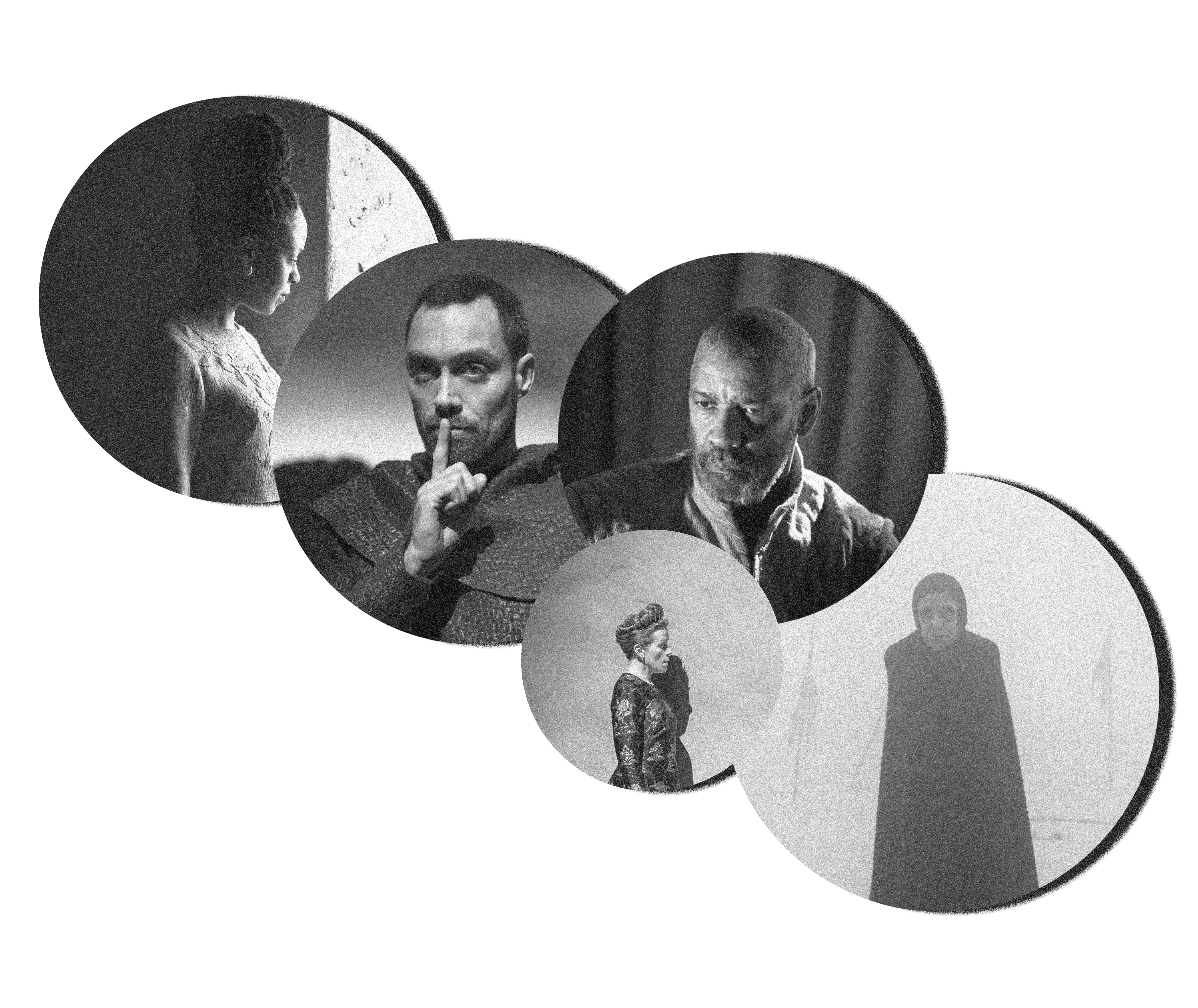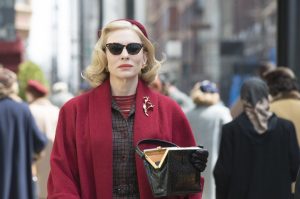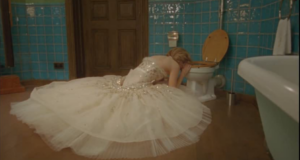The Tragedy of Macbeth (2021) opens on a disorienting, bleak, and foggy landscape, tracing in the footsteps of a weary soldier. The first lines of dialogue anchor the audience in a Shakespearean context, but from there, the interpretation takes off on its own.
Joel Coen’s revival of the classic Shakespearean tragedy is a tale all about the morally gray, with a color palette to match. The classic source material has been plumbed extensively on the stage and on the screen. Coen’s cinematic adaptation follows a line of theatrical productions in the UK, anchored in the local context and even some of the same theaters as Shakespeare’s time, television versions of those same productions, and films that put Macbeth in an entirely modern context. Coen’s work, however, is less historical than conceptual, and successfully preserves the ideals of theater as a limited space where characters and language shine on a blank set while still maximizing cinema’s freedom of technique.
Coen’s adaptation brings out the best in many of the well-known characters, most notably Denzel Washington’s titular Macbeth. The protagonist’s solo shots feel profoundly private; Washington’s full emotional range is on display as he charts the path from loyal soldier to usurper, from sanity to madness. He does not sound overwhelmed by the Shakespearean cadence, instead finding ways to speed it along with whispers and mumbles or make it ring when passion and delusion should feel explosive. While his speech after Duncan’s (Brendan Gleeson) death was a rare miss—Washington’s fake remorse felt wooden—his private soliloquies are ensnaring. Stage actors in the role have a difficult task of providing such vocal range while projecting to the entire audience; Washington takes advantage of the close camera to show off his full emotional bandwidth, as he has his entire career.
While much of the film is anchored in Washington’s performance, the ensemble’s quality raises the bar from other adaptations. Kathryn Hunter’s portrayal of all three witches is brilliantly physical and a delicate balance of intrigue with terror; Stephen Root is hilarious as the wise and cheeky Porter in his short but vital time onscreen; and Alex Hassell imbues the nobleman Ross with an entirely new part to play as a mischievous agent in the saga. Frances McDormand’s Lady Macbeth errs at times into the simplistic, but she provides a strong backbone of ambition to Washington’s more wavering Macbeth throughout.
Though casting is mostly spot-on, some of Coen’s directorial choices are questionable. Duncan’s murder by Macbeth, to which the audience is never privy in Shakespeare’s play, is shown in excruciating and bloody detail here. Anyone familiar with even a small part of the Shakespearean canon is well acquainted with dramatic bloodbaths and coldblooded murders, but the original play’s obscuring of Duncan’s murder has always made it more eerie and sacrilegious. Coen’s choice to linger on the scene saps its subtlety—and thus some of its power. Other visuals are comparatively comic: The flimsy leaves Malcolm’s army holds up in Birnam Wood and Macbeth’s frenzied attack on a stray crow are a bit bizarre.
Nevertheless, the cinematography and true-to-theater sparseness of the set serve the adaptation well. Rather than trying to paint a historically accurate picture of Scotland and dazzle audiences with far-flung locations, Coen incorporates some of the spatial constraints of staged theater, and the action is better for it. The sets are basic and often wide-open, and the film doesn’t jump around from location to location, instead making use of both the heath and the castle in different ways. Characters are accentuated by clean lines between light and shadow, and the barrenness of their surroundings lets emotion take center stage. In a landscape so bleak, the characters find their state of peril reflected.
Coen also takes on one of the most interesting undercurrents in the play: how much the characters are bound to fate and how many of their actions are their own. Hunter’s witches toe the line between shepherding the plot and exerting control over it. The points at which they, and Hunter, crop up again complicate our understanding of the outcome, which at times feels predestined and at times fragile. Hunter reappears as the Old Man just before Banquo’s (Bertie Carvel) murder, a decisive moment of intrusion. The witches also appear at Macbeth’s castle, leaving the confines of their liminal world, and conjure apparitions in a way that tethers them to the physical world without taking the choices and consequences out of the hands of the film’s mortal characters. Rather than obscuring the witches as something mystical and incorporeal, Hunter’s contortionism is on full display, riveting and uncanny.
Perhaps Coen’s greatest liberty is taken with his and Hassell’s interpretation of the usually minor role of Ross; even as he appears beside more central characters, the shifty aristocrat seems to have an agenda all his own. Hassell is visually intense, with an arresting wardrobe to match, and lets the audience into his world while keeping it hidden from the rest of the cast. The decision to insert Ross at the scene of Banquo’s murder is genius and clears up some seemingly loose ends in the play. With each successive action he takes—most obviously his saving Fleance’s life—the audience grows more intrigued as to his true allegiance. At times he seems to be against Macbeth, though his subtle glance at the oncoming murderers outside Lady Macduff’s castle and decision to leave without warning puts his moral position into doubt once again.
The film’s ending, when Ross returns for Fleance and rides off with him, hints at a future continuation of the cycle of violence: Malcolm has been crowned king, but the witches’ prophecy assures that Banquo’s offspring will be on the throne in short order. Ross’ implied role in establishing Fleance as ancestor of the Stewart house clarifies a thread left open in the play.
Taking on one of the most famous works by one of history’s most famous literary minds is no easy feat. But Coen’s adaptation avoids many of the pitfalls waiting for those who take Shakespeare’s work out of the theater, and the star-studded cast lifts up the eloquent language that can so easily feel anachronistic. Whether as an accessible entry into Shakespeare’s work or as a chance to see new life spring from well-trodden ground, The Tragedy of Macbeth is an essential addition to the realm of stage-to-screen classics.






